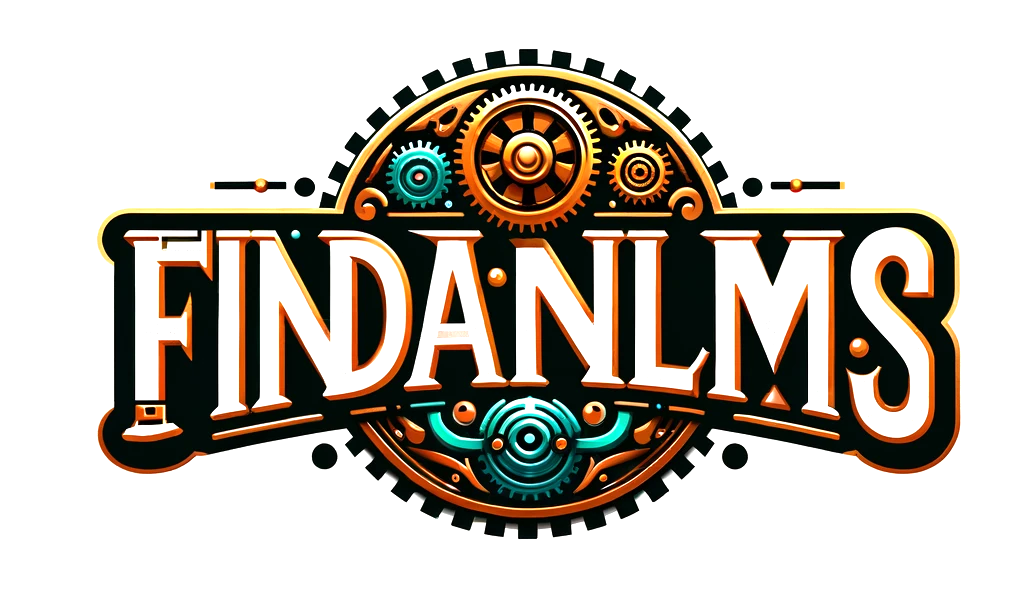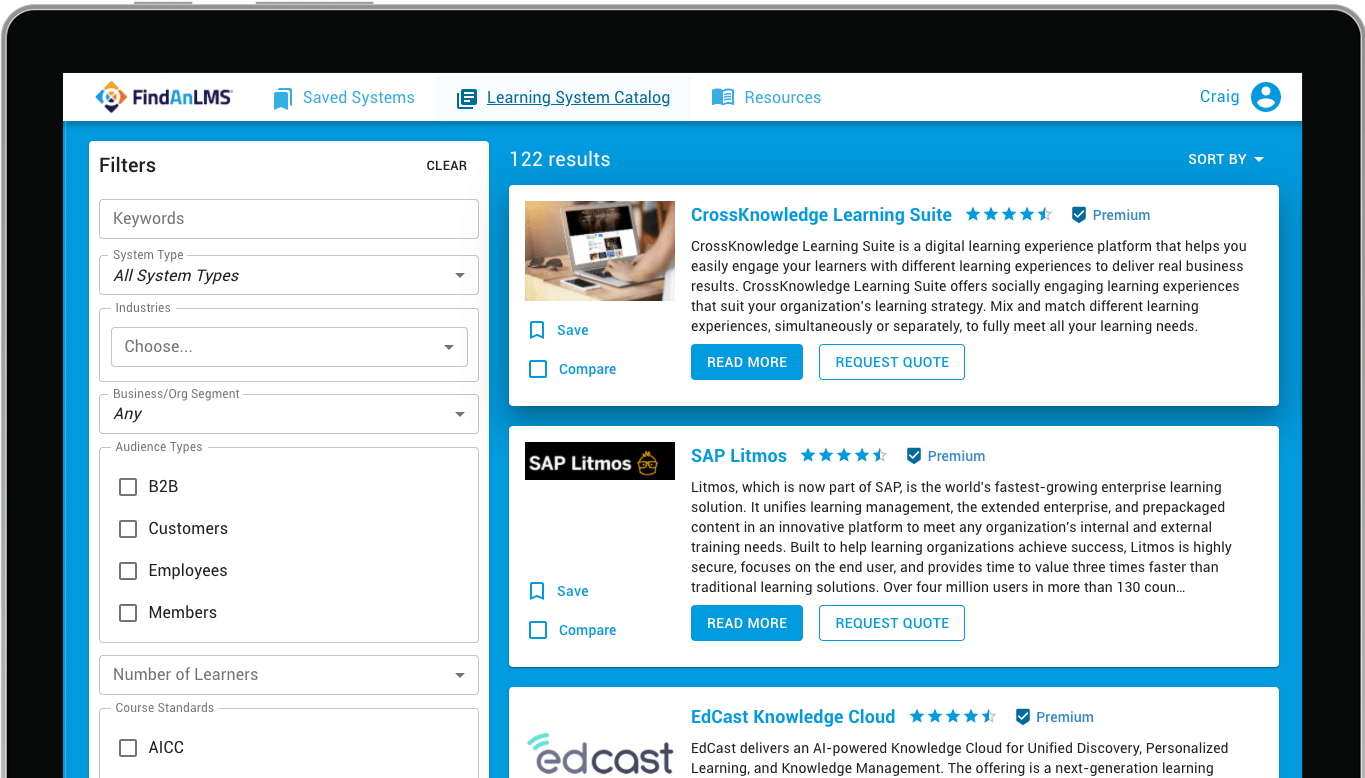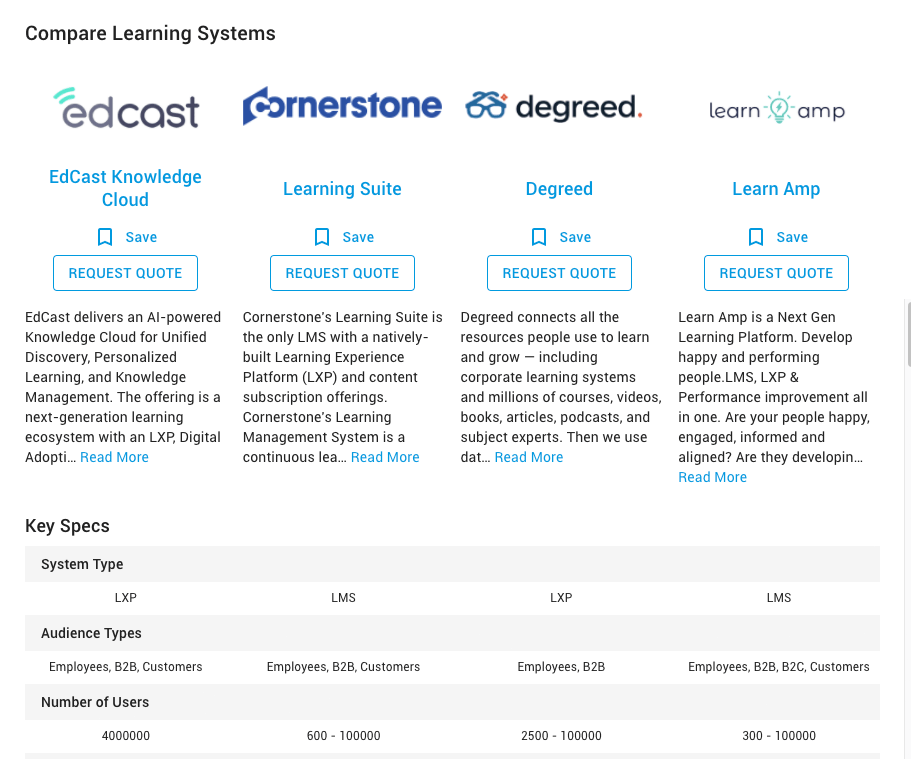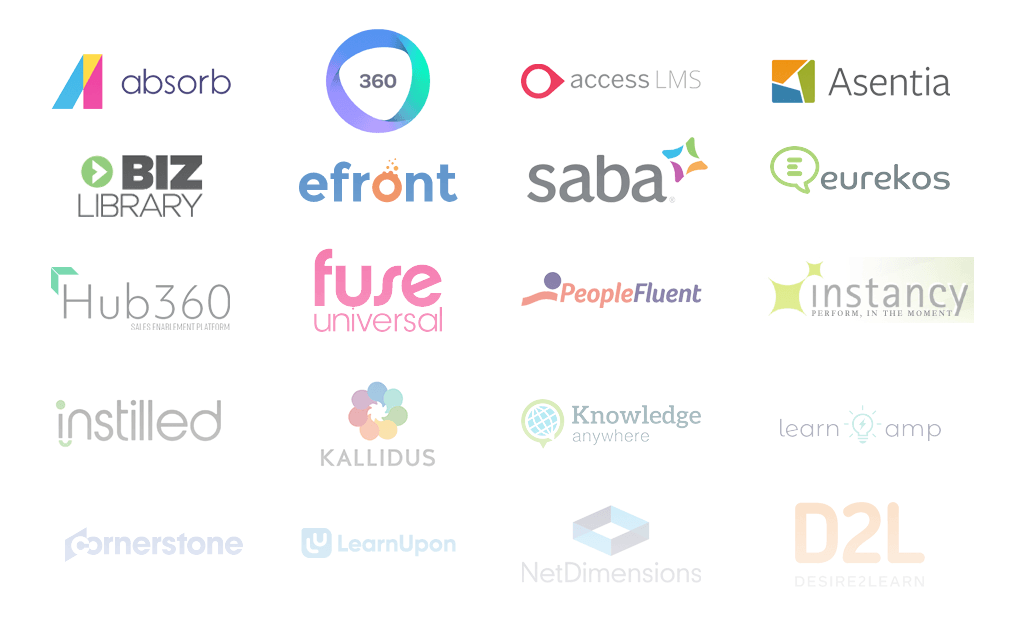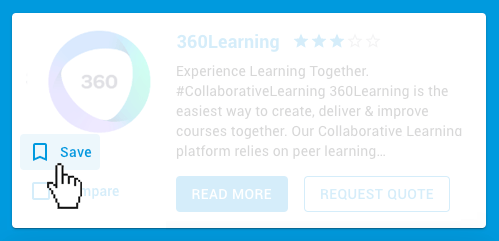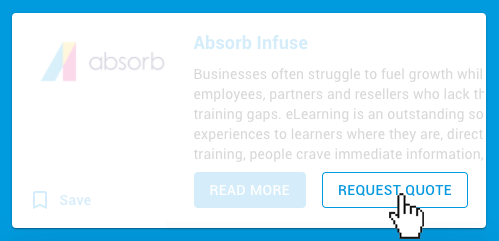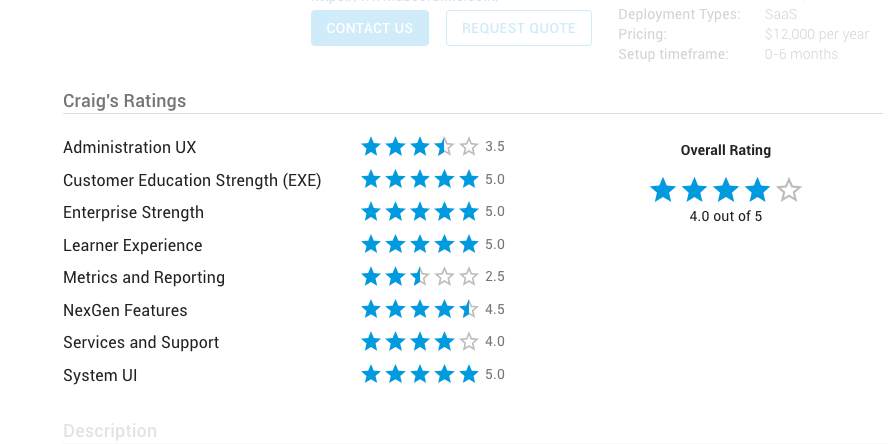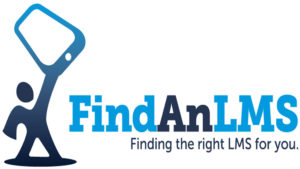Free Open Source LMS vs. Proprietary LMS: A No-BS Comparison
If you’ve researched the LMS (or learning management system) space, you’ve probably heard about the open-source LMS. Furthermore, your curiosity was likely piqued when you heard that an open source LMS is free while commercial learning management systems cost thousands of dollars a year. An open source solution is surely the software you’ve been searching for, right?
Not necessarily. Choosing an open-source platform such as Moodle offers some advantages over a commercial LMS, but there are also hidden drawbacks that you’ll need to consider before opting for one. Moreover, there are several open-source learning management systems available and some of them definitely outperform others. You’ll have to do some LMS research whether you choose an open source platform or commercial software.
You probably aren’t an expert in online learning software, which means you might need support to make the correct decision for your organization’s training needs. Luckily, Craig Weiss is here to help. Weiss has dedicated his professional life to the elearning industry and personally reviewed over a thousand LMS platforms. Likewise, Weiss has extensive experience in L&D (learning and development) and understands the training needs of all learners. Weiss created a site called FindAnLMS.com to help average consumers find a great LMS, and you can create a free account right now to start comparing your options.
Without further ado, let’s take a closer look at the pros and cons of choosing an open-source LMS.
What is an open-source LMS?
An LMS is considered open source if its underlying code is free to the public. Any person, company, or government agency can download it online and do whatever they want with it. Notably, an open-source LMS still needs the central focus on learning that defines an LMS. Programs such as WordPress are sometimes listed as alternatives to Moodle because their code is open-source, but it isn’t an LMS at all. Instead, WordPress is better classified as content management software.
Proponents of open-source software solutions argue that the “open” nature of the platform gives organizations more freedom to personalize the online training available to their employees. Since the code is free, you won’t need to sign a contract forcing you to pay per learner either. Scalability is another advantage for open-source platforms since you can add seats based on your organization’s learning needs free of charge.
What’s a proprietary LMS?
A proprietary LMS is a commercial platform marketed by a for-profit company. The developer owns and protects the underlying code of the LMS, and you have to pay to use it. Most of the biggest brand names in online learning fall into this category, including D2L Brightspace, Thought Industries, Docebo, Absorb LMS, and Eurekos.
Proponents of commercial learning management systems argue that paid software provides cost certainty to organizations while “free” open source alternatives frequently entail unpredictable hidden costs for maintenance and storage. Commercial platforms also generally offer more features and a superior user interface (or UI). Commercial LMS vendors back their products with customer support as well.
Is a free open-source learning management system really more affordable than a proprietary LMS?
Every organization has a learning and development budget, and understanding the pricing will help you determine which type of system best fits your needs. Commercial LMS vendors generally charge annually by “active user,” by which they mean the highest capacity your organization may need. For instance, if you normally have 100 learners but spike to 250 learners in March for mandatory compliance training, you’ll pay for 250 all year long.
Additionally, commercial LMS vendors frequently use “buckets” of learners. For example, you might pay one price for 250-500 learners and another for 501-1,000. You won’t get a refund if your active learner count is below your bucket, but you will have to pay for a higher bucket if you go over.
Compared to that model, an open source platform sounds appealing. However, an open-source LMS isn’t free in any realistic sense of the term. The code is free, but you’re responsible for updating it. If you want to make changes, you’re paying a developer. Don’t have all of the features you need? You’re paying a developer. If you see a new type of cyberattack on the news, you’re paying a developer for added security. You’ll also have a monthly cost if your LMS is cloud based and maintenance fees if you have an on-site server.
These charges can end up higher than you’d pay for a commercial LMS, and you never know when they might spike. A learning platform represents a considerable investment your organization needs adequate funding for regardless of which type of LMS you select.
What skills will I need to manage my LMS?
You can save money with an open-source LMS if you or an employee knows how to code and can handle maintenance, but time is money. If you’re adding enhanced security protocols to your learning software, you’re not doing payroll or interacting with customers. Similarly, an employee managing your online learning platform must be paid.
Every learning system experiences some downtime, so your IT (information technology) team should expect to field LMS questions often. Commercial LMS vendors offer customer support that may help with this, but the elearning industry as a whole is notorious for poor support.
Which type of LMS offers better customer support?
Open source software doesn’t come with support, but that doesn’t mean you’re completely on your own. If your platform has an active community, you’ll have access to manuals, FAQs, and even gurus who understand the system inside and out to help with any problems that may arise. An active community will also support the system through frequent security updates, additional features, and plug-ins to expand what your LMS can do.
Of course, open source software lacking an active community is essentially dead. You’ll have no one to turn to if problems arise and any self-help resources you find are likely woefully outdated. Moodle has the best community right now, but that could change in a few years.
The best type of LMS is…
If you’re still not sure which type of LMS is right for you, you could explore a “managed” open source option. Open LMS is a platform built on Moodle but managed by experts for a fee, combining some elements of commercial and open-source platforms. Since the underlying system is Moodle, you get the flexibility of an open source LMS. Since a company is managing it for you, you’ll get professional support whenever you need it.
This hybrid approach carries some of the downsides of each option as well, so it’s something to consider rather than the universal best approach. The right LMS for you depends on your organization’s specific needs.
FindAnLMS.com makes it easy to find a great learning management system
No matter what type of LMS you’re looking for, FindAnLMS.com is a tremendous resource. Online learning expert Craig Weiss curates the LMS platforms on the site, so you’ll only be looking at the best of the best. Each of the unbiased reviews also includes grades, lists of features, contact information, and exclusive insight from Weiss himself. Best of all, you can compare up to four LMS vendors at once and save favorites for future review.
There’s no such thing as a free LMS, but you can create a free account on FindAnLMS.com today to start searching for your organization’s ideal platform. What are you waiting for?
